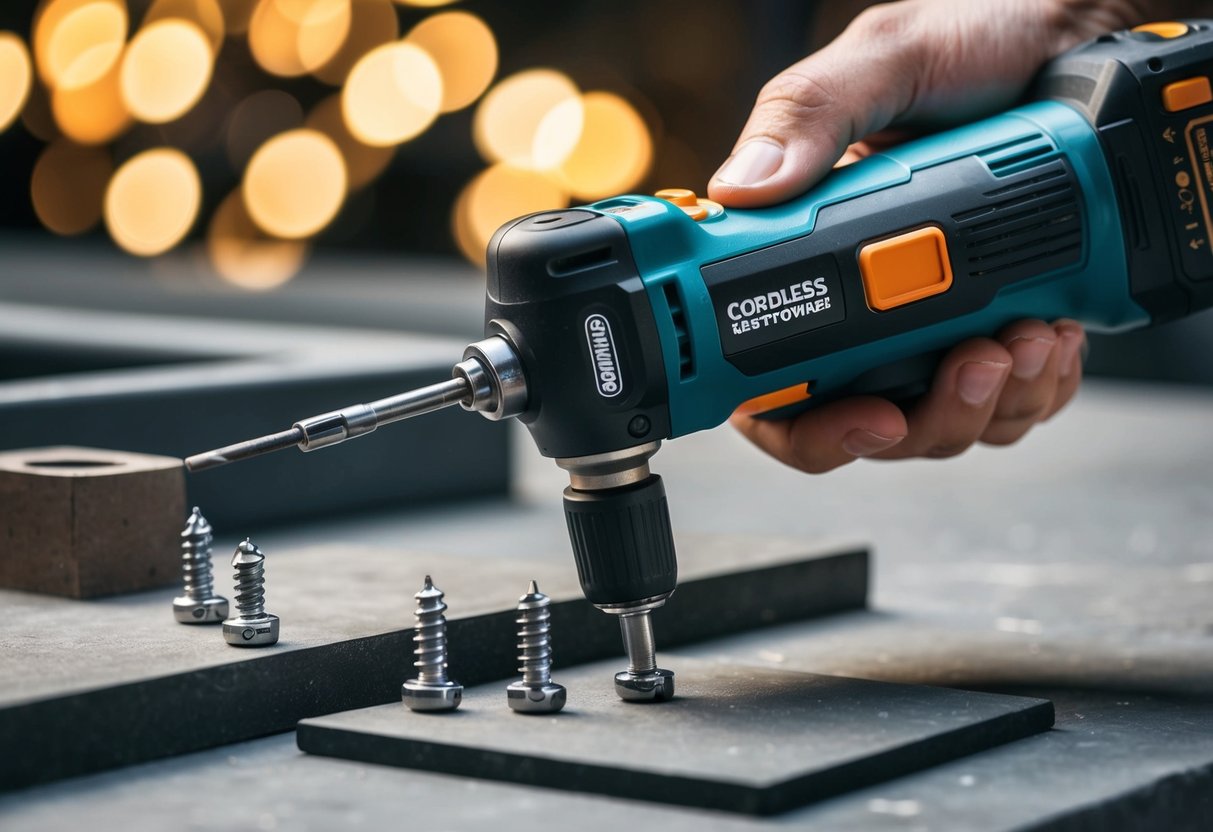Reviewing the Best Cordless Screwdrivers: Torque, Battery Life, and Versatility
Key Features for Optimal Usability

When selecting a cordless screwdriver, features like illumination and design elements greatly enhance the user’s experience. These attributes can significantly influence the convenience and effectiveness of using the tool in various settings.
Illumination and LED Features
Cordless screwdrivers with built-in LED lights offer a significant advantage, especially when working in dimly lit areas. The LED light illuminates the work area, providing better visibility and precision. It’s a crucial feature for professionals and DIY enthusiasts alike, ensuring screws are placed accurately without the need for additional lighting.
The placement and brightness of the LED guide light are important considerations. Some models have the light positioned in a way that minimizes shadows, making the work area clearer. A durable and efficient LED bulb is essential to avoid frequent replacements and provide consistent performance over time.
User-Friendly Design Elements
A lightweight design is crucial for a cordless screwdriver, as it reduces hand fatigue and makes it easy to maneuver, especially in tight or awkward spaces. Ergonomic handles contribute to improved comfort and grip, allowing users to maintain control during extended use.
Other features like a simple, intuitive operation and an easy-to-access power switch enhance overall usability. The screwdriver should allow for quick bit changes, which saves time and makes it suitable for a variety of tasks. A well-designed cordless screwdriver seamlessly combines these elements, ensuring a straightforward and efficient user experience.
Comparing the Best Brands of Cordless Screwdrivers
When assessing cordless screwdrivers, key factors include torque, battery life, and versatility. Bosch, Makita, Dewalt, and Black+Decker stand out, each offering unique features suited for different needs.
Bosch: Power and Precision
Bosch cordless screwdrivers are celebrated for their power and precision. Known for durable motors and efficient battery systems, they offer consistent performance across varied tasks. The tools usually include adjustable torque settings, allowing users to tailor power levels for specific applications.
Bosch models are versatile, often equipped with ergonomic designs that reduce fatigue during prolonged use. The compact size of these tools makes them suitable for both professional and home DIY projects. Furthermore, Bosch’s quick charging batteries ensure minimal downtime, adding to their appeal for those who need reliability and efficiency.
Makita, Dewalt, and Others: A Review
Makita’s DF001DW model is known for its lightweight design and robust performance. It features a rechargeable battery system that supports extended work sessions, making it popular among DIY enthusiasts and professionals. Adjustable clutch settings on Makita models enhance control, adding to their adaptability.
Dewalt cordless screwdrivers are recognized for their build quality and long-lasting battery life. These tools deliver high torque, catering to heavy-duty applications. Meanwhile, Black+Decker offers affordable options with reliable performance, making them a favorite for household tasks. Each of these brands brings its strengths to the table, catering to a wide range of user preferences and requirements.
Drill Drivers Vs. Cordless Screwdrivers
When selecting between a drill driver and a cordless screwdriver, it’s essential to consider key factors such as torque, battery life, and versatility. Each tool has specific uses, making it crucial to choose based on the task at hand.
Understanding the Differences
Drill drivers and cordless screwdrivers serve unique purposes. Drill drivers are often used for heavier tasks involving drilling holes into wood or metal. They typically offer higher torque settings and variable speed options. This versatility allows them to handle a wide range of tasks, from building furniture to installing fixtures.
On the other hand, cordless screwdrivers are more compact and lighter. They are designed for tasks that require driving screws rather than drilling holes. These tools are perfect for light assembly work, such as assembling cabinetry or installing light fixtures. The convenience of being smaller makes them easier to use in tight spaces.



